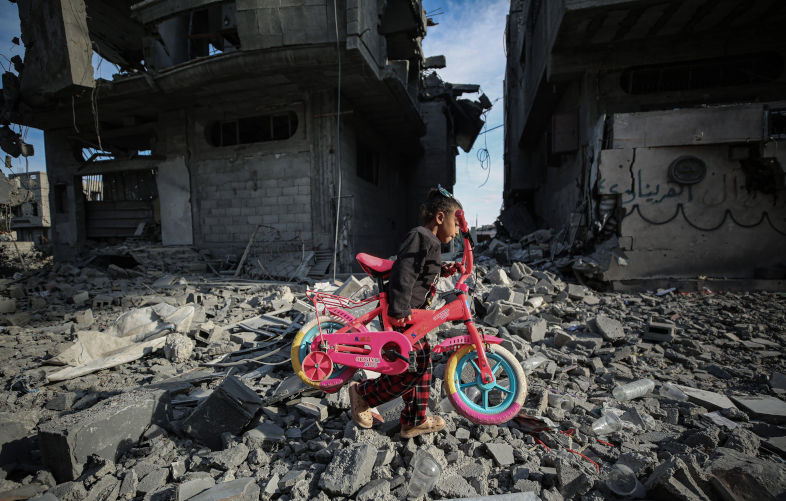Childhood on hold: Growing up too soon in Gaza and beyond
October 13, 2025
UNICEF has called Gaza the “most dangerous place in the world to be a child.” It estimates every single child in Gaza will need mental health support.
An entire generation is being scarred by trauma before they have even had the chance to grow.
Childhood should be a time of play, safety and learning. It should be the period in life when children are free to dream without fear. For too many though, living in war/genocide zones, their childhood has been stolen.
Ten-year-old Siraj Mohamed, speaking to ABC’s Foreign Correspondent, asked the haunting question: “Where is the childhood?” His words reverberate across Gaza, where more than a million children are living through what can only be described as a nightmare.
For almost two years, many have been out of school. Instead of lessons, they are learning the sounds of war, the thud of bombs, the hum of drones, the screams of the injured. Instead of playing games, they are waiting in line for food or water, watching the sky above. Instead of imagining their futures, they’re worrying about whether their parents or siblings will still be alive tomorrow.
It’s not only the buildings that are in ruins, but the very foundations of childhood – safety, stability and particularly trust in the future, trust in people.
The statistics are hard to absorb. Tens of thousands of children have been killed. Tens of thousands more have been orphaned or injured. Childhoods are measured not in school terms or birthdays, but in bombings survived and family and friends who have been killed.
Behind these numbers are real people, real children, real names and real dreams.
Many children still speak about what they want to be when they grow up – doctors, surgeons, engineers, artists, even as they live in tents, rub sand from their eyes at night and carry water instead of books. For others, the future is imagined in different ways – how to walk again after losing a limb, how to live with the pain of chronic skin conditions, how to cope with injuries that will never fully heal. Their hopes for the future are both distressing and inspiring.
It’s easy for the world to become numb. Headlines, figures and footage and peoples’ personal biases can blur into one another, but these are children just like any others – children who once had toy boxes, classrooms and friends. Children who still crave the small joys of childhood, like a doll, a school bag, their friends or a mum/dad who reassured them with a hug in the dark.
The world can’t allow indifference
These children deserve more than survival; they deserve the chance to heal, to learn, to play, to hope again.
International action is urgently needed, not only to end the violence, but to rebuild lives, with education, healthcare and mental health support at the centre. For many families, this also means urgent evacuation, both for medical treatment that can’t be provided in Gaza and for refugee resettlement, so children can grow up in safety.
Countries like Australia can play a critical role by providing medical transfers and offering refugee pathways, helping ensure these children have a chance at a life beyond violence.
Childhood shouldn’t ever be a casualty of war, of genocide.
The question that Siraj asked — _“_Where is the childhood?” — is one the world must be courageous enough, empathetic enough to answer.
The views expressed in this article may or may not reflect those of Pearls and Irritations.

